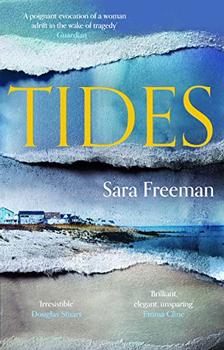Summary | Excerpt | Reading Guide | Reviews | Beyond the book | Read-Alikes | Genres & Themes | Author Bio

A tour de force of metaphysical reality, powered by two remarkable characters: a teenage boy who runs away from home to escape a gruesome oedipal prophecy, and an aging simpleton.
With Kafka on the Shore, Haruki Murakami gives us a novel every bit as ambitious and expansive as The Wind-Up Bird Chronicle, which has been acclaimed both here and around the world for its uncommon ambition and achievement, and whose still-growing popularity suggests that it will be read and admired for decades to come.
This magnificent new novel has a similarly extraordinary scope and the same capacity to amaze, entertain, and bewitch the reader. A tour de force of metaphysical reality, it is powered by two remarkable characters: a teenage boy, Kafka Tamura, who runs away from home either to escape a gruesome oedipal prophecy or to search for his long-missing mother and sister; and an aging simpleton called Nakata, who never recovered from a wartime affliction and now is drawn toward Kafka for reasons that, like the most basic activities of daily life, he cannot fathom. Their odyssey, as mysterious to them as it is to us, is enriched throughout by vivid accomplices and mesmerizing events. Cats and people carry on conversations, a ghostlike pimp employs a Hegel-quoting prostitute, a forest harbors soldiers apparently unaged since World War II, and rainstorms of fish (and worse) fall from the sky. There is a brutal murder, with the identity of both victim and perpetrator a riddle–yet this, along with everything else, is eventually answered, just as the entwined destinies of Kafka and Nakata are gradually revealed, with one escaping his fate entirely and the other given a fresh start on his own.
Extravagant in its accomplishment, Kafka on the Shore displays one of the world's truly great storytellers at the height of his powers.
I thought this was a marvelous novel, although I'm not sure that I entirely understood it. The upside is that I'm not the only one, it seems that even Murakami had trouble understanding it! As he says, "This may sound self-serving, but it's true. I know people are busy and it depends, too, on whether they feel like doing it, but if you have the time, I suggest reading the novel more than once. Things should be clearer the second time around. I've read it, of course, dozens of times as I rewrote it, and each time I did, slowly but surely the whole started to come into sharper focus."..continued
Full Review
 (235 words)
(235 words)
(Reviewed by BookBrowse Review Team).
Murakami was born in Kyoto in 1949 and graduated from the Waseda University,
Tokyo, in 1975. He and his wife lived in Europe and the United States from 1986
to 1995 before returning to Tokyo. He did not write his first
novel, Hear the Wind Sing (1979, translated 1987) until he was in his
thirties. His major breakthrough came in 1987 with the publication of
Norwegian Wood - a coming of age story named after the Beatles' song, which is
somewhat different to his other books in that it is written in a realistic
style, whereas his other books all have strong fantasy
elements.
In addition to writing his own books in Japanese, Murakami is a
skillful translator of English works into Japanese, including books
by Scott Fitzgerald...

If you liked Kafka on The Shore, try these:

by Sara Freeman
Published 2023
An intoxicating, compact debut novel by the winner of Columbia's Henfield Prize, Tides is an astoundingly powerful portrait of a deeply unpredictable woman who walks out of her life and washes up in a seaside town.

by Scott Hawkins
Published 2016
Populated by an unforgettable cast of characters and propelled by a plot that will shock you again and again, The Library at Mount Char is at once horrifying and hilarious, mind-blowingly alien and heartbreakingly human, sweepingly visionary and nail-bitingly thrilling.
Never read a book through merely because you have begun it
Click Here to find out who said this, as well as discovering other famous literary quotes!